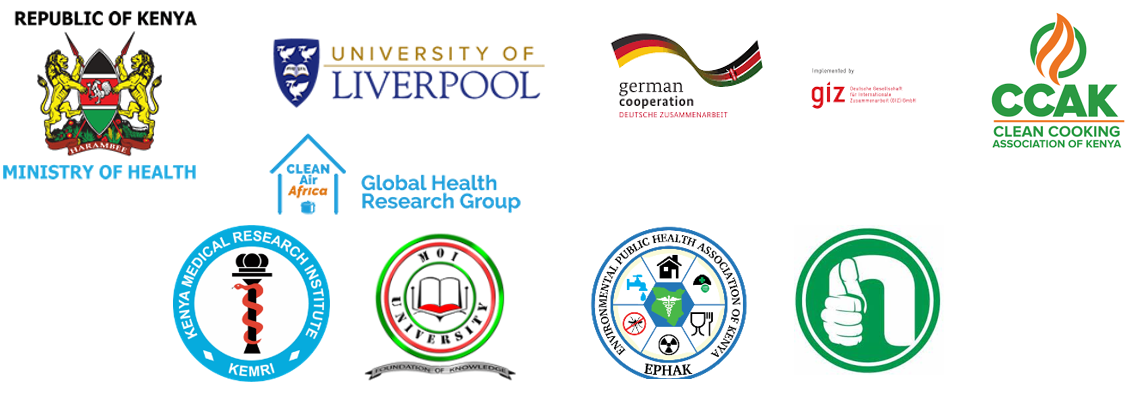An estimated 2.8 billion people rely on polluting fuels, including solid fuels (e.g. wood, charcoal) and kerosene, for their household energy needs. Unsafe levels of fine particulate matter (PM2.5) generated from combustion of polluting fuels is an established risk factor for several infectious and non-communicable respiratory and cardiovascular diseases.
In Kenya, 76% of the population (35 million) relies on solid fuels and kerosene for cooking and heating. Associated household air pollution (HAP) accounted for 1,027,116 (5.8% total) DALYs and 22,109 premature deaths (7.5% of all deaths) in 2019.
Amref International University (AMIU) is a member of the National Technical Working group on Air Pollution, anchored under the Ministry of Health pioneering intervention policies on air pollution (i. e domestication of WHO Guidelines for indoor air quality). AMIU together with other stakeholders such as University of Liverpool and Clean Cooking Association of Kenya are supporting the Ministry of Health efforts in building capacity on management of indoor air pollution through training and research interventions.
Ongoing/Completed Interventions
- Capacity building training on Energy, Household Air Pollution and Health
- Facilitators Guide: Household Air Pollution CHVs Training Manual (Module 14)
Article: Towards clean household energy in Africa: experience from the front line in Kenya by Prof. Nigel
- 1st Health, Environment and Climate Change Conference-Kenya (2019)
- HAP Webinar Series: “An advocacy platform for mitigating impacts of household air pollution on disease burden in Africa”
Partners

